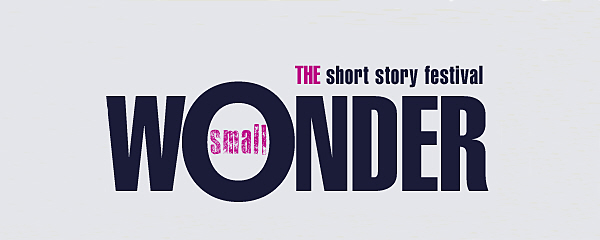
by Katherine Orr
Small Wonder 2011 offered an inspiring range of readers and speakers eager to communicate their enthusiasm for the short story form, despite competing, intermittently, with the sound of the milking machine, the put-put of a small biplane which looped back and forth over the barn, and the high-wire gymnastics of small mice up in the rafters.
First up on opening night was a panel discussion chaired by Ra Page, of Comma Press, on the genesis of Litmus, Comma’s recently published anthology, which saw scientists and writers collaborating to produce stories inspired by eureka moments. Maggie Gee and Alison MacLeod discussed the challenges of incorporating complex science in creative writing, while eminent cardiologist Denis Noble spoke warmly of his experience of being fictionalised in MacLeod’s short story.
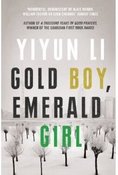 Robert Coover and Yiyun Li followed, with readings and discussion of their work. Li chose sections from the story ‘Kindness’ which appears in her latest collection Gold Boy, Emerald Girl – but first, she read from William Trevor, the writer she most admires, and whose work she has often said her stories ‘speak to’. Coover, whose early work, Briar Rose & Spanking the Maid, has recently been reissued as a Penguin Modern Classic, read new work – much to the delight of the audience – and discussed his experience of teaching ‘cave writing’ at Brown University, drawing on virtual reality to explore fictional worlds.
Robert Coover and Yiyun Li followed, with readings and discussion of their work. Li chose sections from the story ‘Kindness’ which appears in her latest collection Gold Boy, Emerald Girl – but first, she read from William Trevor, the writer she most admires, and whose work she has often said her stories ‘speak to’. Coover, whose early work, Briar Rose & Spanking the Maid, has recently been reissued as a Penguin Modern Classic, read new work – much to the delight of the audience – and discussed his experience of teaching ‘cave writing’ at Brown University, drawing on virtual reality to explore fictional worlds.
On Friday night John Crace and Tom Vowler talked digested reads, football, depression and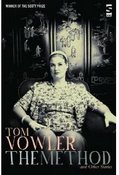 caving, and Tom made an eloquent case for the short story – not as something that might suit the modern age simply because people have short attention spans, but as a unique form demanding real accomplishment from writers. John Crace read his hilarious summary of Rebecca, from the book Brideshead Abbreviated, and managed to make his experience of depression simultaneously moving and funny in extracts from the forthcoming Vertigo. Tom read from his debut collection, The Method.
caving, and Tom made an eloquent case for the short story – not as something that might suit the modern age simply because people have short attention spans, but as a unique form demanding real accomplishment from writers. John Crace read his hilarious summary of Rebecca, from the book Brideshead Abbreviated, and managed to make his experience of depression simultaneously moving and funny in extracts from the forthcoming Vertigo. Tom read from his debut collection, The Method.
Damian Barr’s Small Wonder Slam drew a full house – this year’s subject was ‘The Key’. Writers had three minutes to impress with their take on the subject, and stories ranged from the winning, comic tale of suburban swingers, to darker, gothic themes.
Saturday’s opening event, ‘Something Was There’, celebrated the launch of Virago’s new Asham Anthology. Sarah Waters, Naomi Alderman and Kate Clancy discussed ghost and gothic – this year’s theme for the competition. Alderman and Clanchy read from the stories they contributed to the anthology – both forging new takes on the genres by incorporating elements of new technology (sat nav, iphone) into their tales. Sarah Waters read from Graham Greene.
In ‘New Ways With Words’ – Joe Dunthorne read from his story ‘Critical Responses to my Last Relationship’, Geoff Dyer from an amusing story-travelogue hybrid about a road trip which took a sinister turn, and Tessa Hadley from a moving, meditative story on the loss of a loved one. The panel discussion, led by Di Speirs, roved from a debate on why the latest technology is slow to make its way into fiction – for example, hyperlinks – to the freedom of the short story, and the scope it gives writers, comparative to novels, to experiment with voice and craft, and to make bold choices.
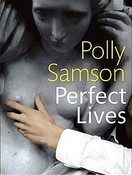 ‘Perfect Lives’, chaired by Alison MacLeod, saw two readings by Polly Samson from her new collection, followed by an in-depth conversation with Professor MacLeod on the art of the short story, and on themes, like the Garden of Eden, which are threaded through Samson’s work. The literary life was also discussed more broadly – motherhood meant Samson stopped writing for a decade before finding the space to produce Perfect Lives.
‘Perfect Lives’, chaired by Alison MacLeod, saw two readings by Polly Samson from her new collection, followed by an in-depth conversation with Professor MacLeod on the art of the short story, and on themes, like the Garden of Eden, which are threaded through Samson’s work. The literary life was also discussed more broadly – motherhood meant Samson stopped writing for a decade before finding the space to produce Perfect Lives.
‘The Doll’ was a panel discussion with Polly Samson, Anthony Quinn and Daisy Goodwin on a collection of juvenile short works by Daphne du Maurier, recently published by Virago. There was agreement that while the quality of the stories comes nowhere near to matching her later work, they make for fascinating reading, especially for the glimpses given into the young author’s mind.
Rounding up Saturday’s events, for ‘Mrs Dalloway’s Party’ Juliet Stevenson and Sylvestra le Touzel read from Woolf’s short story sequence, written around the same time as the more famous Mrs Dalloway. The barn was packed, the atmosphere one of studied concentration as these tales were brought expertly to life.
Sunday’s opening event, ‘Life Stories’, brought Janice Galloway, Colin Grant and Rachel Cusk together as a panel on life writing. Galloway delivered an amusing tale about her first boyfriend, Colin Grant read from a forthcoming Granta piece with a poignant but comic take on his father, while Rachel Cusk admitted that it was difficult to read from her latest work, a raw, personal account of her divorce. Discussion followed on the genre – Galloway argued that in life writing it is the specificity of the detail of one’s singular experience that serves to remind others of their own version, creating resonance, and making the subject universal.
A real highlight of the festival was ‘The Crème de la Crème’, Ali Smith’s session on Muriel Spark. Smith read from Spark’s stories, and spoke with great eloquence and energy on the relationship between mortality and the short story form, as well as dichotomies, doubling and multiple layers in Spark’s work.
‘Spoilers and Imperfectionists’ followed. Annalena McAfee and Tom Rachman read from their new books – both fictional takes on the world of journalism – and went on to discuss prior landmark novels on the subject, like Scoop and New Grub Street. Both authors felt that there is a place now for newer versions that take into account the radical changes that journalism is going through, with broadsheets dying out, and online versions taking over.
This year’s festival ended with a lucid, involving discussion between Hanan Al-Shaykh and Shahidha Bari on ‘One Thousand and One Nights’. Al-Shaykh’s new translation of the tales has also fed into a theatre production directed by Tim Supple. Discussion ranged from the myth of Shahhrazad to the overt eroticism of the tales.
An eclectic and inspiring four days, leaving festival-goers with plenty of food for thought to see them through the year … thank you Small Wonder!
*
For more about this year’s Small Wonder Festival, and Charleston House, read ALISON MacLEOD’s evocative account of rubbing shoulders across space and time with Virginia Woolf HERE.
*
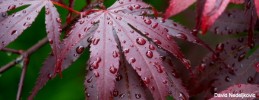

Yes Katherine,
More than a recap, just add rundown and full analysis. Love the rapidly changing variables, with great transitions. In other words, way to make it all flow. There is allot going on here. But succession of subject, and overall distribution of valuable information, is captivating. This having me thrilled to read your future posts. Sorry to drag on my intrigue, in a festival recap/rundown. And a pleasant festival at that. I am chomping at the bit some KAT. Your short stories should gain near the top, in my opinion. Stay focused and keep us updated. Nice Work!!
–
Gyms Thresholder22
PS Also Alison MacLeod’s fascinating behind-the-scenes article. It seems to me the sun always shines at Charleston.
Thanks, Katherine. I couldn’t get to Small Wonder this year, so it was a pleasure to read your account.
Thanks, Dora! It’s good to know that the toiling is appreciated!
Thank you Katherine for your recap of the many wonderful goings-on at the Festival. Between your recap and Alison’s wonderful article, I really felt I was there. Maybe one day I too will find myself “rubbing shoulders” with the greats as well as the current lovers and practitioners of the short story.
Thank you also to all who toil to bring this wonderful website to life.
I was only able to come for the first night (alas! reading now about the riches on offer during the rest of the weekend).
What I was there for, I loved. Found it all (unexpectedly) rather moving – particularly Alison Macleod & Denis Noble talking about their conversations & meetings which later resulted in Alison’s story.
I presume no recordings were made of these events?
(Of course one presumes digital archiving is made of EVERYTHING nowadays. Nice to surmise that for this one-off, nothing remains but the memories).